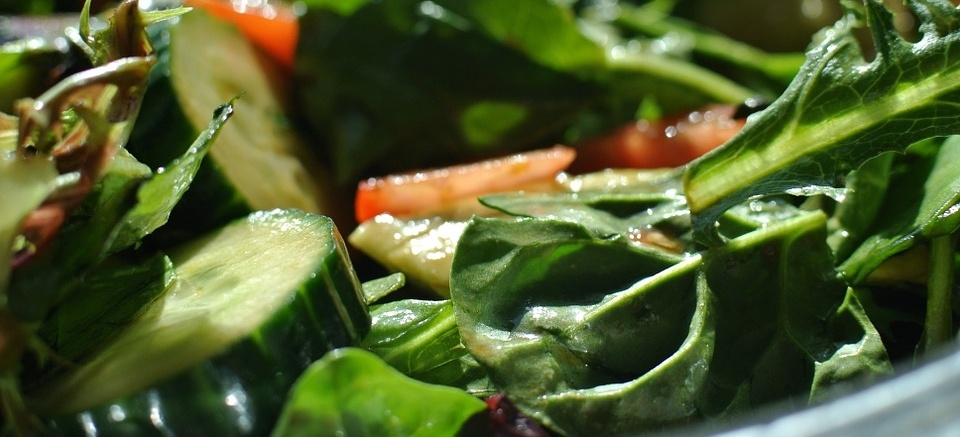Gluten-Free, Fat-Free, Cholesterol-Free, Sugar-Free Foods
Why people think they’re healthy: “Free” implies that bad things are removed from foods, so it would seem these foods would then be healthy and therefore there is no need to limit portions.
Why that’s not necessarily so: People with celiac disease cannot process gluten (found in wheat, rye, barley, bulgur, graham, and spelt) however most people can. Someone may experience a benefit from cutting gluten from their diets only because they are cutting down on carbohydrates, but this often can go too far. Someone who goes “gluten free” has to become really conscious of including whole grains in the diet (such as rice [especially brown], corn, quinoa, millet, buckwheat, gluten-free oats) because of their nutritional contributions and importance to overall health. Carbohydrates should provide 45 – 65% of total calories daily per the Dietary Guidelines for Americans. Many foods made without fat or sugar will have more of the other in order to make them taste better, which still renders them to be unhealthful. The manufacturers are going to put something in to make sure people like their products! Calorie balance always comes into play with portions, as well.
Health Drinks and Health Bars
Why people think they’re healthy: Popular electrolyte-replacement drinks replace fluids and provide “energy”; protein bars are formulated to have protein and “energy”.
Why that’s not necessarily so: The “energy” from these foods is provided by carbohydrates (mostly sweeteners) and some vitamin-containing “waters”; plus they often provide caffeine. Electrolyte drinks provide fluids and energy for vigorous workouts, however they are not healthy for casual drinking when compared to plain water, 100% fruit juices, or milk. “Health bars” are often candy bars with added oatmeal or other grains, and nuts. Advise people to read labels to see the sugar and fat content of these heavily marketed products. Suggest they consider a switch to making smoothies which contain whole fruits, vegetables and milk or yogurt for a healthy drink or snack.
Vegetarianism
Why people think it’s healthy: Aren’t we supposed to eat more vegetables?
Why it’s not necessarily so: The problem for many people is that being a vegetarian is more about giving up “meat” and less about eating enough volume or variety of vegetables and fruits. A diet based on pasta and cheese or nuts and soy can be quite unhealthful due to its limited nature. Vegans in particular are at risk of not getting enough protein and calcium, and should take B-12 supplements because this nutrient can only be found in animal proteins such as meat, dairy, eggs, and fish. Further, vegetarians still need to focus on getting a balanced diet—fresh fruits, vegetables, and whole grains, and encouraged to consume low fat dairy as well.
Wine
Why people think it’s healthy: Many studies tout that wine is healthy and beneficial, showing that wine’s alcohol and polyphenols, especially resveratrol from grapes, appear to reduce LDL (“bad”) cholesterol and increase HDL (“good”) cholesterol. Wine also provides antioxidants which can be helpful in preventing some diseases.
Why it’s not necessarily so: Many of the studies on wine have been conducted on animals, or look at correlations, and are not necessarily true for humans. Plus, some of the benefits of wine can be found in grapes themselves, and in other fruits and vegetables. The recommended daily limit of one glass for a woman, two for a man is not often followed in real life. Moderation is the key. Other research has also demonstrated that wine is unhealthy. Too much can lead to high blood pressure, increased triglycerides, and cancer. Wine is also not recommended during pregnancy.
Foods People Often Think Are An Indulgence, But May Be Good For You
Coffee
Why people think it’s an indulgence: It’s “addictive”, it interferes with sleep, and people love it so much it must be bad.
Why it’s pretty healthful: True, overindulgence can create problems for some such as affecting blood pressure or interfering with sleep. Current research continues to provide evidence for new ways that caffeine is beneficial to health. Contributing to the major reasons coffee was deemed unhealthy in past decades was that people who smoked, exercised little, ate unhealthy diets, and also drank coffee resulted in coffee being blamed for years for high cholesterol, obesity and other problems when in fact the accompanying habits were the culprits. Coffee seems to be protective against Parkinson’s disease, Type 2 diabetes, and liver disease including liver cancer (Mayo Clinic). Neurologists have determined that coffee has a role in improving cognitive function and decreasing the risk of depression. The key again is moderation, as well as moderating the added cream and sugar.
Eggs
Why people think they are an indulgence: Eggs contain cholesterol, and for many years cardiologists pinpointed eggs as being especially detrimental to heart health.
Why they’re pretty healthful: Eggs do contain cholesterol, however even people with high cholesterol do not have to avoid them completely or even limit themselves to the whites. Eggs are an excellent source of protein, and the yolks offer minerals (zinc, iron) as well as choline, vitamin A, and B-vitamins which are essential to normal cell processes in the body.
Chewing Gum and Mints
Why people think they are an indulgence: Aren’t they essentially candy?
Why they’re pretty healthful: The sugar alcohol Xylitol in some sugarless gums and mints is actually beneficial to the teeth. Xylitol prevents cavity-causing bacteria from adhering to teeth and can help build enamel. Xylitol should be listed in the first three ingredients for gum or mints. It can be beneficial to take the gum or mints after eating sugary or acidic foods at times when you don’t brush your teeth.
Resources:
Academy of Nutrition and Dietetics. www.eatright.org. Accessed December 3, 2015.
Emmie Olivas
Cecelia Health CDE
